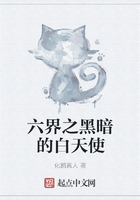This process of selective admission has, of course, always been going on; ever since the fashion of pecuniary emulation set in -- which is much the same as saying, ever since the institution of a leisure class was first installed. But the precise ground of selection has not always been the same, and the selective process has therefore not always given the same results. In the early barbarian, or predatory stage proper, the test of fitness was prowess, in the naive sense of the word. to gain entrance to the class, the candidate had to he gifted with clannishness, massiveness, ferocity , unscrupulousness, and tenacity of purpose. these were the qualities that counted toward the accumulation and continued tenure of wealth. the economic basis of the leisure class, then as later, was the possession of wealth; hut the methods of accumulating wealth, and the gifts required for holding it, have changed in some degree since the early days of the predatory culture. In consequence of the selective process the dominant traits of the early barbarian leisure class were bold aggression, an alert sense of status, and a free resort to fraud. the members of the class held their place by tenure of prowess. In the later barbarian culture society attained settled methods of acquisition and possession under the quasi-peaceable regime of status. Simple aggression and unrestrained violence in great measure gave place to shrewd practice and chicanery, as the best approved method of accumulating wealth. A different range of aptitudes and propensities would then be conserved in the leisure class.
Masterful aggression, and the correlative massiveness, together with a ruthlessly consistent sense of status, would still count among the most splendid traits of the class. These have remained in our traditions as the typical "aristocratic virtues." But with these were associated an increasing complement of the less obtrusive pecuniary virtues; such as providence, prudence, and chicanery. As time has gone on, and the modern peaceable stage of pecuniary culture has been approached, the last-named range of aptitudes and habits has gained in relative effectiveness for pecuniary ends, and they have counted for relatively more in the selective process under which admission is gained and place is held in the leisure class.
The ground of selection has changed, until the aptitudes which now qualify for admission to the class are the pecuniary aptitudes only. What remains of the predatory barbarian traits is the tenacity of purpose or consistency of aim which distinguished the successful predatory barbarian from the peaceable savage whom he supplanted. But this trait can not be said characteristically to distinguish the pecuniarily successful upper-class man from the rank and file of the industrial classes. The training and the selection to which the latter are exposed in modernindustrial life give a similarly decisive weight to this trait. Tenacity of purpose may rather be said to distinguish both these classes from two others; the shiftless ne'er do-well and the lower-class delinquent. In point of natural endowment the pecuniary man compares with the delinquent in much the same way as the industrial man compares with the good-natured shiftless dependent. The ideal pecuniary man is like the ideal delinquent in his unscrupulous conversion of goods and persons to his own ends, and in a callous disregard of the feelings and wishes of others and of the remoter effects of his actions; but he is unlike him in possessing a keener sense of status, and in working more consistently and farsightedly to a remoter end. The kinship of the two types of temperament is further shown in a proclivity to "sport" and gambling, and a relish of aimless emulation. The ideal pecuniary man also shows a curious kinship with the delinquent in one of the concomitant variations of the predatory human nature. The delinquent is very commonly of a superstitious habit of mind; he is a great believer in luck, spells, divination and destiny, and in omens and shamanistic ceremony. Where circumstances are favorable, this proclivity is apt to express itself in a certain servile devotional fervor and a punctilious attention to devout observances; it may perhaps be better characterized as devoutness than as religion. At this point the temperament of the delinquent has more in common with the pecuniary and leisure classes than with the industrial man or with the class of shiftless dependents.
Life in a modern industrial community, or in other words life under the pecuniary culture, acts by a process of selection to develop and conserve a certain range of aptitudes and propensities. The present tendency of this selective process is not simply a reversion to a given, immutable ethnic type. It tends rather to a modification of human nature differing in some respects from any of the types or variants transmitted out of the past. The objective point of the evolution is not a single one.
The temperament which the evolution acts to establish as normal differs from any one of the archaic variants of human nature in its greater stability of aim -- greater singleness of purpose and greater persistence in effort. So far as concerns economic theory, the objective point of the selective process is on the whole single to this extent; although there are minor tendencies of considerable importance diverging from this line of development. But apart from this general trend the line of development is not single. As concerns economic theory, the development in other respects runs on two divergent lines. So far as regards the selective conservation of capacities or aptitudes in individuals, these two lines may be called the pecuniary and the industrial. As regards the conservation of propensities, spiritual attitude, or animus, the two may be called the invidious or self-regarding and the non-invidious or economical.















